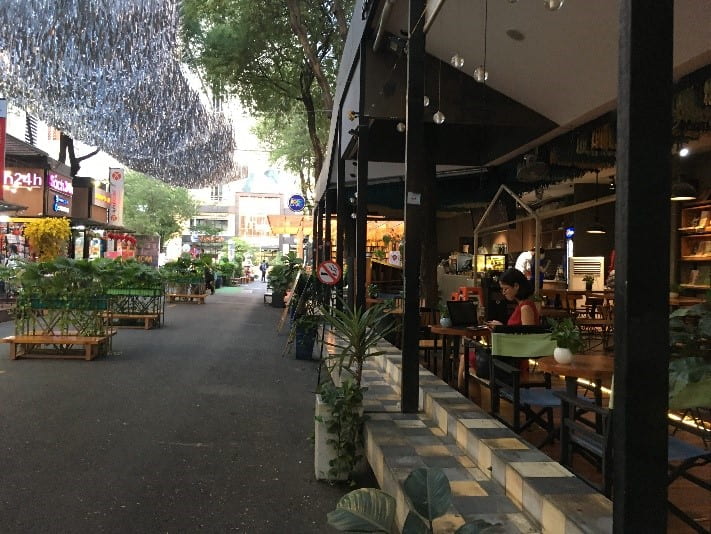May 29, 2020
Going the distance: An Acquisitions Trip to SE Asia at a Time of Pandemic
In early February, before travel restrictions were implemented, and the true nature of the global pandemic was fully understood, I made an acquisitions trip to Southeast Asia to purchase materials for the UW Libraries SE Asia collection. While adhering to all of the CDC and UW guidelines for travel, it was still an anxious time to be traveling in Asia; but for me, it was a familiar itinerary. Visiting small publishers, government offices, museums and archives, and other sources of library materials that are not easily found in bookshops.
My trip began in Cambodia, then Myanmar. By the time I reached my final destination, Southern Viet Nam, life was far from normal. Despite restrictions, I was able to visit book shops, research institutions and some government agencies in most of my destinations, and achieved my major objectives, one of which relates to a proposed project the SE Asia Center is planning in collaboration with the UW Libraries, the Bophana Audiovisual Resource Center in Phnom Penh, the Center for Khmer Studies in Siem Reap, and the Yangon Film School in Myanmar. It would focus on the work of Cambodian filmmaker Rithy Panh, the founder of the Bophana Center, particularly his use of archives in film and other memory projects to assist national recovery after trauma. My other major objective in Myanmar was to continue the collection of electronic journals and newspapers which I began when the press opened up under the democracy movement. My visit to the Yangon Film School resulted in the purchase of some 60 documentary films, all with a focus on contemporary social issues, including ethnic and religious divisions in Myanmar. My visit to Myanmar coincided with that of the LC Field Office representative from Jakarta, Carol Mitchell, and she invited me to join her for a talk at the American Embassy on US research libraries, an event attended by over 100 librarians and which engendered very useful discussions of open access and copyright. Carol and I also took a 300 Km weekend trip to Mawlamyine in Mon State, and Hpa-an in Karen State to purchase local language materials.
My next stop was to be Hanoi, where I knew that a COVID outbreak had occurred in the northern suburbs. I constantly monitored the US CDC travel advisories, and was receiving updates from the UW’s Travel Security Office before I did decide to proceed. From my base in Hanoi, I made a daytrip to Hải Phòng, a Seattle Sister Cities whose local literary journal I have been collecting for many years. As a result of assistance from a poet friend in Hanoi, the head of the Hải Phòng Writer’s Union, which publishes the journal, donated to me all our missing journal issues as well as some 40 titles of rare literary works by Hải Phòng writers. As I flew to the central city of Huế, the government announced a second outbreak of COVID-19. Despite new restrictions, I was able to acquire materials from the main bookshop there, as well as from many local research organizations.
By the time I reached Saigon all government offices and libraries were closed, but bookshops were open and I had a valuable conversations about available ebooks. Then a friend called to say that her uncle, the Saigon writer Lê Văn Nghĩa, was offering to donate his collection of some 30 boxes of books to UW. Concern over shipping costs forced me to select enough for only one box, but amongst the rarer titles I selected was one about former UW Vietnamese foreign student Nguyen Thai Binh, who was killed by security forces at the Saigon airport in 1972. Binh, who was involved in the anti-war movement on campus, was forced to return to Saigon by the US government. Fearing for his life, he attempted to hijack the plane back to Viet Nam, hoping to force it to land in Hanoi. Binh became a hero of the anti-war movement and a memorial collection in his name was donated to Special Collections. The book, which shows no OCLC holdings, will be a great addition. The next day I left for a very long, tense trip back to Seattle, via Tokyo and Denver, just as the U.S. too was beginning to lockdown against the virus.


